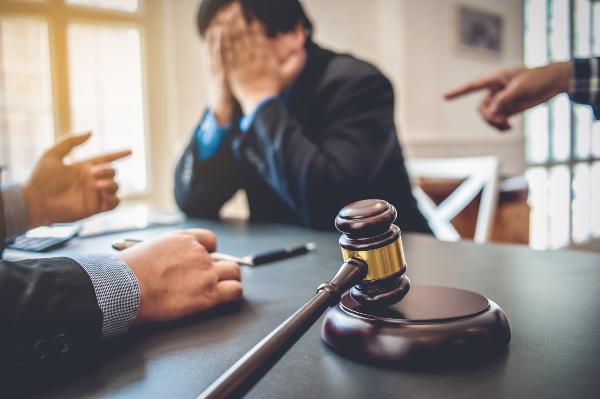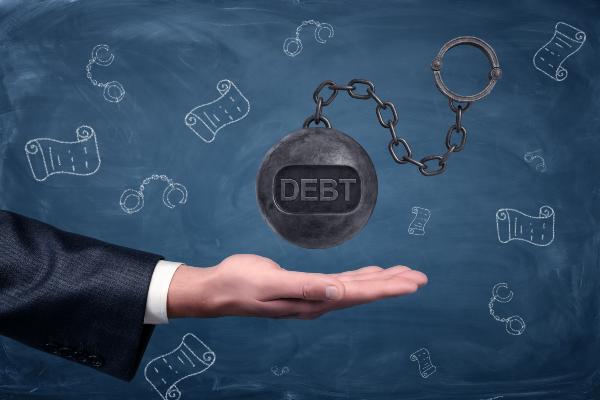If you are being harassed by a debt collector or creditor, an Orlando debt harassment attorney at VG Law Group, LLP can help.
Back in 1978, Congress passed the Fair Debt Collection Practices Act (FDCPA) with the aim of protecting consumers from harassment over unpaid debts. This Act was passed after bankruptcy filing numbers spiked within that year after it came to light that debt collectors were using abusive, unfair, and deceptive debt collection practices. The Act limits the debt collector's actions and behaviors they may or may not apply while collecting a debt from consumers. Furthermore, it gives consumers with debts the ability to seek monetary compensation or injunctive relief for illegal harassment.

Consumer debtors: This Act regulates and applies to household, family, and personal debts. It also includes retail financing, car payments, credit card accounts, mortgages, and medical care. Remember, debts related to business issues are not covered under the FDCPA.
Third-party debt collectors: The Act also applies to individuals or entities attempting to collect debt on behalf of their client.
Creditors who are collecting their debt: Creditors attempting to collect the debt owed are not subject to the FDCPA regulations. Although, this varies from one state to the next.
Debtor Location Acquirement
Any debt collector looking to gather information from a third party regarding the location of a debtor must identify themselves, their intention, and their employer. They must remain discreet and may only contact these parties once to know the location of the debtors. They can only contact the third party if the information is later found to be missing or wrong. If the debtor hires an attorney, then all communication must be through the attorney.
Communication With the Consumer
Without the debtor's consent, collectors may not contact said debtor regarding the debt at inconvenient times (as directed or specified by the statute). The collector may not contact the debtor if they have hired a lawyer or at their place of work when they know that such communications will negatively affect the debtor. Also, no third party may be contacted other than the debtor's lawyer, except as mentioned in the first point.
If the debtor's attorney or the debtor notifies the collector in writing that they are refusing to pay the debt and no longer want any further communications with them, it is illegal for the collector to contact the debtor further. Communication is acceptable if the collector is notifying the debtor that special action will or may be taken by the creditor/collector, or to advise the debtor that collection efforts are being terminated.
Consumer Disrespect
According to FDCPA, the collector may not oppress, harass, or abuse any person connected to debt collection. This includes:
Unfair and Misrepresentation Practices
A collector may not:
Validation
After the initial contact, the collector must send a written statement showing the amount of debt owed, lender name, and payment due date.
A debt collector is liable for damages if they fail to comply with the FDCPA provisions. The compensation amount the debtor will be awarded will revolve around communication frequency, non-compliance of the collector, debtor resources, the nature of non-compliance, the number of people negatively affected, and even the degree of intent with which the violations were executed. In other words, the design, way, and language used are going to be used to evaluate the amount of compensation you deserve. If violence was used, the claim or litigation may escalate to assault, which is a criminal offense.

With the help of a skilled, experienced, and professional Orlando debt harassment attorney, you can recover compensation in a debt collection harassment case.
Intending to expand coverage for consumers, Florida passed its statute to complement the FDCPA, which is known as the Florida Consumer Collection Practices Act. Florida's legislation covers a broad area compared to the federal legislation, which covers legislation to both the Creditors and Debt Collectors. The federal FDCPA is only applicable to debt collectors, making the law blind to creditors attempting to collect their debts from following certain protocols or engaging in certain behavior.
The FCCPA has very specific guidelines on the subject and the actions creditors and debt collectors may engage in while collecting the unpaid debt. Under Florida's Act (the FCCPA), before the final ruling, both creditors and debt collectors may not:
If you believe that you are being harassed or a debt collector or creditor is violating FDCPA or FCCPA, you may be eligible to receive compensation. To know more about your case, contact VG Law Group, LLP, and an Orlando debt harassment attorney will see if they can help you. Call 1-833-HELP-365 or contact us online to schedule a consultation.